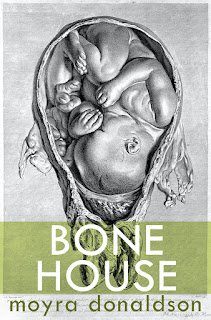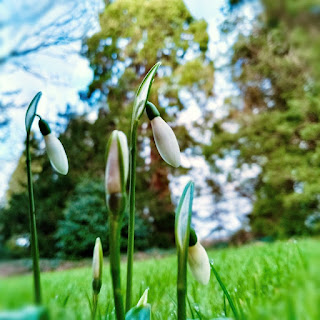Odd as F*ck is the debut poetry collection from Anne Walsh Donnelly, published by Fly on the Wall Press. Anne Walsh Donnelly writes poetry, prose and plays. She is a single mother of two teenagers. Originally from Carlow in the south-east of Ireland, she now lives in Mayo in the west of Ireland. She is the Poet Laureate for the town of Belmullet in the west of Ireland. Her poetry was shortlisted for the 2019 Hennessy/Irish Times New Irish Writing Literary Award. She won 2nd place in the International Poetry Book Awards, 2020 for her chapbook, The Woman With An Owl Tattoo, and was selected for the Poetry Ireland Introductions Series 2019, and Words Ireland Mentorship Programme in 2020. Her work has been shortlisted for the Fish International Prize and the RTE Radio One Francis Mac Manus competitions. Her play My Dead Husband's Hereford Bull will be performed at this year's Claremorris Drama and Fringe Festival.
The title poem is a conversation between two women on the breakdown of a marriage between Victoria, who has 'dyed her hair,/same colour as a hawthorn berry', and Jim, who has 'applied for an annulment.' It demonstrates the potential for judgement and small mindedness in a provincial town, through subjective chatter, 'Paid no heed to my warnings./I know sons never do', and humour, 'Ma, the only virgins in this town are the nuns.' A wry and droll cynicism that disguises suffering and the healing process is at the heart of many of Walsh Donnelly's poems. In My Therapist's Dog the golden retriever asks, 'When are you going to stop coming here?/She has to have two coffee pods/before your session.' In Talk To Me Like Lovers Do she says, 'I write a poem about having sex at sixty./You should be knitting scarfs for grandchildren.'
Divided into seven section, the first is a long poem, Days Like These, a meandering mind on the river of life in quest for the sea, in this case some sort of faith, or peace with God, which the writer, in philosophical battle, finds in herself, 'But maybe, just maybe, God is,/My Greatness/My Ordinariness/In Days like these.' Part two and four explore childhood, grief, and sadness. Soon describes a child's panic on being left in an isolation ward, awaiting her mother who does not return quickly enough, 'you vacuum-packed your heart/promised never to unwrap it,/expose yourself to germs again.' Mother's Day 2020 expresses the anguish of not being able to see one's mother, 'I don't know when I can be with you again. Weeks? Months?' Death is Nothing At All finds the poet stricken at the loss of her mother,
Death is not -
nothing.
It is everything.
There are personal works where the poet's journey through her sexuality is navigated with no-holds-barred honesty. I found I'm a Jack Hammer ('I come to life when he grabs my neck/plugs me into the power socket'), and The Knife Thrower's Wife, fearless, and sad;
Knowing that she'll survive
his onslaught, she tells him,
to do what he has to do,
no matter how bloody that might be.
While joy is literal in Joy, a gusty celebration of the female body, 'Joy is a naked woman/sitting astride/a speckled-grey mare/raising her arms', and in The Wonder of You two women in St Stephen's Green 'dare to lick/each other's cone'. Walsh Donnelly does not flinch in the discussion of the ageing process and sex, in My Menopausal Womb, My Menopausal Vagina and Vagina.
Part seven of the book, Voices, is dedicated to Martina Evans. In this fragment objects such as a Ford Fiesta, an eel, the moon, a dreamcatcher, an umbrella and a surf board speak to the author. This is an extensive collection. It documents the struggle, personal growth, healing, liberation and hope of a woman. The butterfly who alights on the poet's shoulder in Red Admiral tells her, 'it's much too soon for me to die,/we still have a lot of living to do.' And in the final, Cygnet, after Emily Dickinson, we are urged to 'listen', 'hope', 'rise', skitter' and 'soar'.
Odd as F*ck is recommended reading for the LGBTQ community, and wider. Mr Sun and Wrench are loving poems to the poet's son. Preparing for Death, Desecration of Time and To Be a Stranger in Your Own Home caught my eye for their philosophizing and imagery. This is an extremely well written and versatile edition. It raises questions about sexuality, mental health, women's bodies and the ageing process in particular. It does so with courageous, unwavering and stout conviction. It is available to purchase here.


























